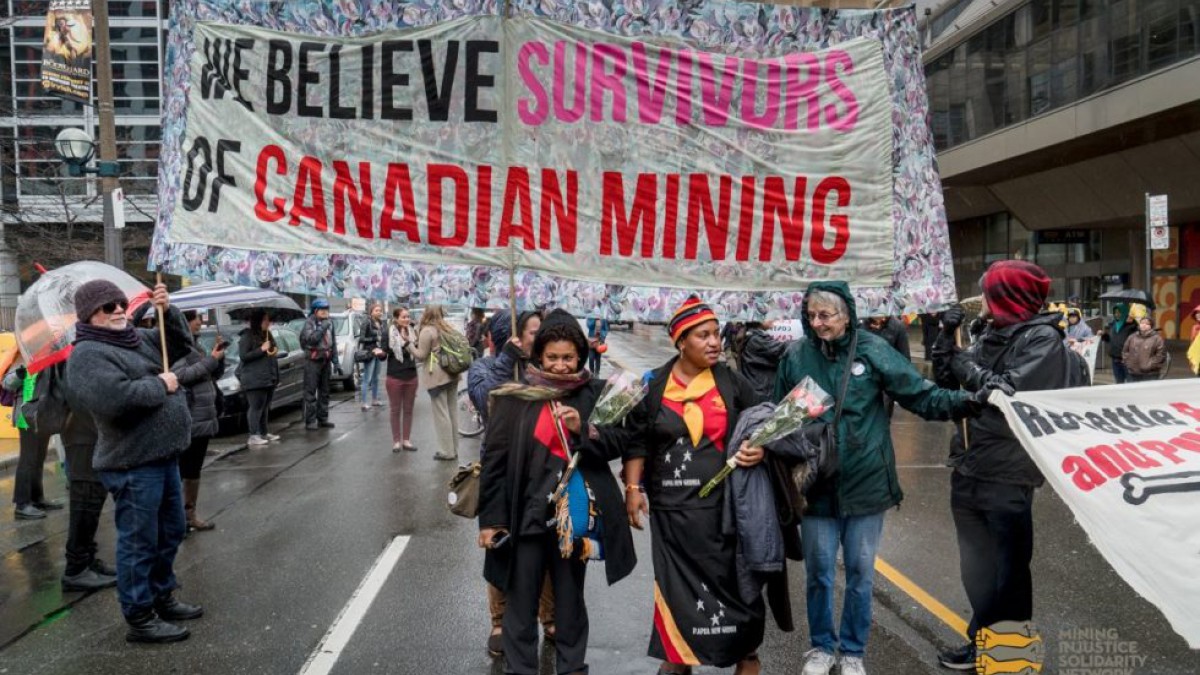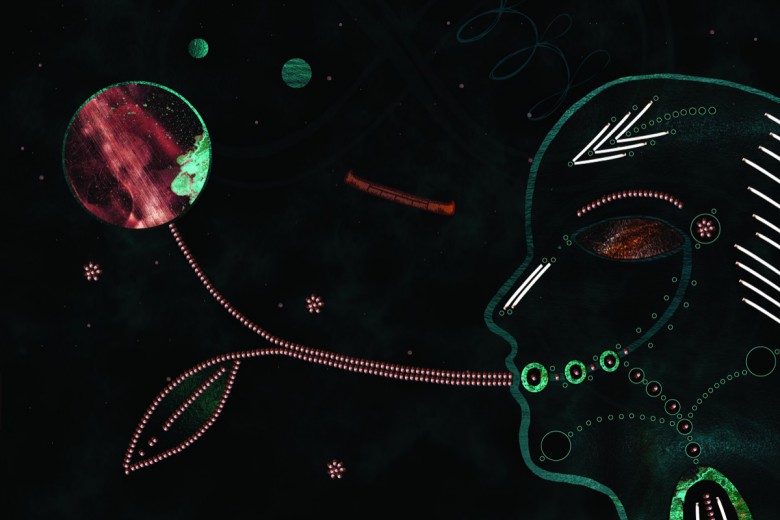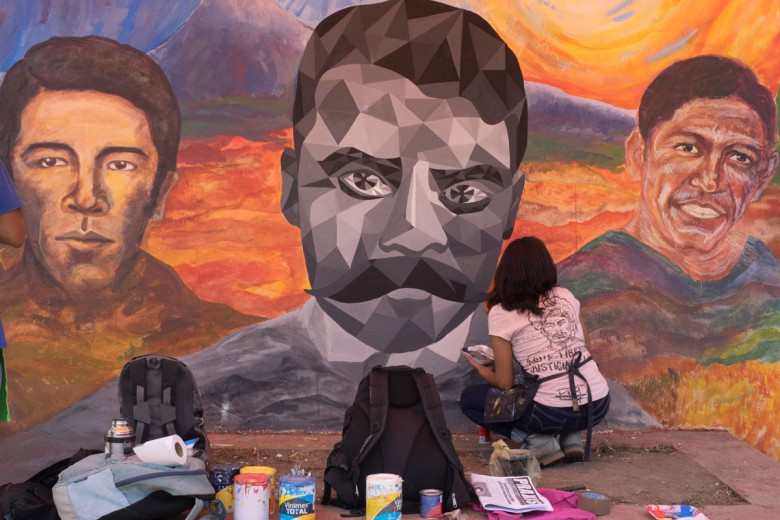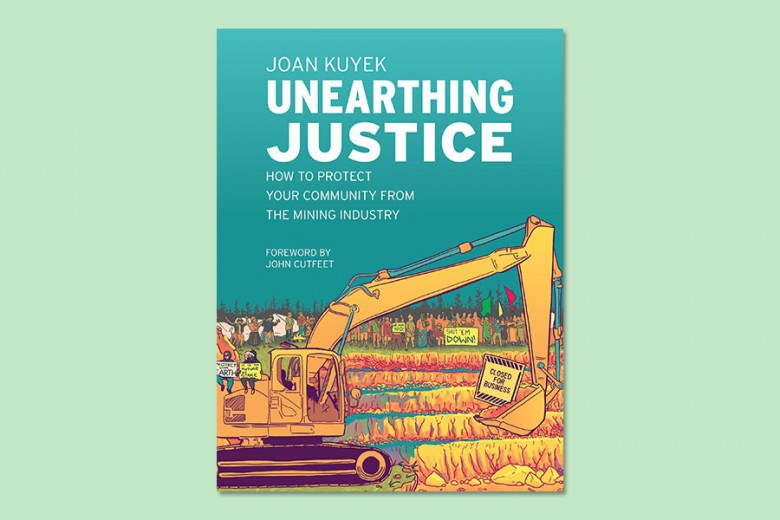Since Peter Munk died on March 28, Canadian media outlets have rushed to publish gushing eulogies, focussing on his philanthropy and success as a mining magnate. But such accolades mask what underlies this reputation.
In Ontario, patients benefit from state-of-the-art treatment at the Peter Munk Cardiac Centre at the Toronto General Hospital – funded by a $100 million donation that lowered Munk’s tax burden. Meanwhile the only hospital in Porgera, Papua New Guinea sits right next to Barrick Gold’s Porgera Joint Venture mine, and has been closed for over a year. Here, the company Munk founded contravenes international environmental norms by dumping millions of tonnes of mine waste directly into the river system each year, contaminating that water for hundreds of kilometres and causing chemical burns to villagers who come in contact with the waste.
On the other side of the world, over 50 residents living near Barrick’s Pueblo Viejo mine in the Dominican Republic reported lesions on their bodies following direct contact with the water in the area. The lesions are consistent with known effects of cyanide exposure. A group of community members who had been exposed to contaminated water also tested positive for cyanide traces above safe levels, and unacceptably high levels of heavy metals in their blood.
These, and hundreds of other environmental violations at Barrick mines across the world, destroy livelihoods, displace populations, divide communities, and harm human health. Among other human rights violations, Barrick’s presence has led to the militarization of entire communities in Tanzania and Papua New Guinea, where people routinely die in confrontations with mine security. Environmental racism is always gendered: In 2015, 120 women alleged that they were raped by guards at Barrick’s Porgera mine.
Barrick’s presence has led to the militarization of entire communities in Tanzania and Papua New Guinea, where people routinely die in confrontations with mine security.
Meanwhile, Peter Munk’s philanthropy within Canada has burnished his reputation of magnanimity, and deflected attention away from allegations about his company’s abuses abroad. Barrick Gold’s international violations, which allowed for Munk’s philanthropy, have been met with a studied lack of scrutiny by Canadian authorities. Indeed, Munk’s success is only the logical consequence of Canadian policy: lax oversight for extractive ventures, incentives for prospecting, unfettered access to speculative capital, and tax frameworks that favour the accumulation of wealth by mining speculators at the expense of the public good.
Not only has the Canadian state helped make neocolonial extractive ventures profitable, regardless of the environmental and human cost, it has also offered diplomatic support for Canadian mining interests overseas. When a 2009 coup and subsequent fraudulent election in Honduras led to a government that has been accused of grave human rights violations, narco-trafficking, and corruption, Canada remained a steadfast ally because of the regime’s support of Canadian mining interests in the country. Moreover, the Canadian legal system makes it nearly impossible for those harmed by Canadian companies abroad to seek justice in Canadian courts.
Almost every news story about Munk highlights his loyalty to the country that allowed him to amass his wealth, after his family fled from Nazi-occupied Hungary. On its surface, this narrative is a stale rehashing of the trope of Canadian hospitality to immigrants. But that a man with such global influence should make his most significant donations within Canada also illustrates how the tax write-off from his donations are highly subsidised by the Canadian taxpayer, with no accountability in return. And certainly, Munk profited greatly from his connections at the highest echelons of Canadian politics, with the likes of former Prime Minister Brian Mulroney and former Minister of Foreign Affairs John Baird joining Barrick Gold’s International Advisory Board after leaving office, giving the corporation enormous political clout and access to policy makers.
Barrick Gold’s international violations, which allowed for Munk’s philanthropy, have been met with a studied lack of scrutiny by Canadian authorities.
Of special concern are Munk’s connections with his alma mater, the University of Toronto, which have helped undermine campaigns pushing for greater accountability in the mining sector. Specifically, the Munk School of Global Affairs at UofT – founded by a $51 million donation from Peter and Melanie Munk – was involved with a Harper-administration push-back against recommendations by the 2009 National Roundtables on Corporate Social Responsibility. The roundtables called for environmental and human rights standards for Canadian businesses abroad, and for an ombudsperson to investigate allegations of company abuses. Instead, the Harper government created a toothless CSR Counsellor position, first filled by Marketa Evans, the former director of the UofT’s Munk Centre for International Studies (the Munk School of Global Affairs’ predecessor). At the same time, the Harper Government pursued a pro-mining strategy that channeled Canadian International Development Agency (CIDA) funds to community projects linked to Canadian mining operations. CIDA also abruptly stopped giving money to several nongovernmental organizations that advocate for the human rights of mining-affected communities, including Kairos, Development and Peace, and the Mennonite Central Committee. When the Canadian government moved to dismantle CIDA altogether, to further align international giving with foreign policy objectives like trade, this move was marshalled by none other than Janice Stein, the Munk School director at that time, who served on an advisory panel for CIDA restructuring.
From Latin America to the Asia-Pacific and Africa, Peter Munk’s legacy of environmental destruction has health consequences that far outweigh his support for cardiovascular care and university research in Toronto. Today, Barrick Gold – Canada’s largest mining company and the world’s largest gold mining company – holds their Annual General Meeting, outside of which activists from Toronto’s Mining Injustice Solidarity Network will be protesting. We must not allow Munk’s money to exonerate him – or his legacy – of his crimes. The violence and displacement that accompany the rapacious ventures of Barrick Gold around the world – with the complicity of Canada’s financial, media, academic, and diplomatic sectors – has led to dispossession and death for many communities. Who will publish the eulogies for them?







